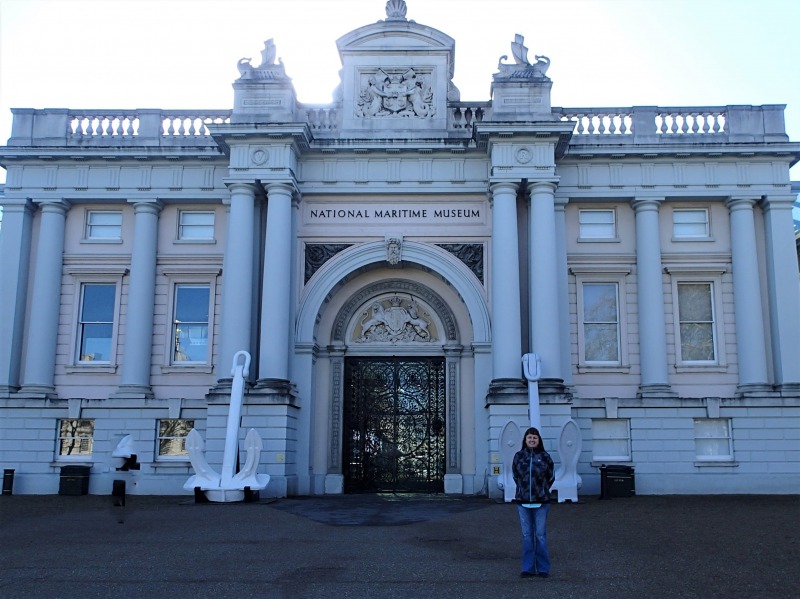Graduate Student Research Diary: Cynthia Power " signing on " at the National Maritime Museum in Greenwich, London

Cynthia Power, who just completed her MA in the Department of History at Memorial, reflects on her research project and her trip to the UK.
“‘Signing On: Literacy, Knowledge and Seafaring Work in Newfoundland, 1860 – 1930’ puts Newfoundland seafarers’ literacy skills and knowledge acquisition under scrutiny. What made this enquiry possible for my Master’s thesis was the requirement that crew members sign Crew Agreements when they engaged on vessels of the British Empire. If unable to provide their signature, they made their mark with an ‘x’. The voyage-specific, legally binding contract between seafarers and shipmasters documented personal data, as well as wages, departure and arrival dates. It included a scale of provisions and regulations for maintaining discipline. The riches of these documents have been celebrated, particularly since, in the 1970s, the majority were moved to Memorial’s Maritime History Archive (MHA). My MA thesis explores the particular circumstances under which a lack of formal literacy skills was an economic, social or cultural barrier. It is the first in-depth study of Newfoundland seafarers to tap the potential of Agreements for studying human resources in the province.
When Memorial holds a massive amount of these records, why travel across the North Atlantic to search through the relatively small holdings of a repository that kept just samples? The Department of History’s Research Committee was confident enough that the effort was worthwhile when it provided me with a generous Scholarship in the Arts (SITA) research grant. I travelled to London, UK March 1 - 20, 2019 to the Caird Library and Archive in the National Maritime Museum (NMM) in Greenwich.
In the first place it is true that historians do not like gaps, and there were such gaps in my coverage because of the way that the original collection of the Registrar General of Shipping and Seamen had been split by its archival distribution. With access to years ending in “5” at the Caird Archive, I augmented my knowledge of vessel deployment patterns and crew movements into “the West India, North or South America, Newfoundland and Mediterranean,” the main markets for the Colony’s dried cod exports. But any historian also knows that completeness is illusory, because the past can never be recovered completely. My visit to the Caird confirmed a suspicion that in the close nexus of metropole and colony, official administration of the Agreement system was probably at its most lax. Gaps are, then, the indications of existing practices and the consequences of how the politics and economics of colonial maritime relations evolved. I examined several thousand Agreements to establish this. Unsurprisingly my courtesy name at the Caird was “The Crew Agreement Lady.” This came with benefits: bulk orders were delivered to “my” desk when normally researchers are limited to one or two documents at a time. Alongside the gaps there were discoveries to be made of different types of Registrar General of Shipping and Seamen documents than I had seen at the MHA. Readers can learn more about my work on Newfoundland seafaring and literacy from the Agreements in an article forming part of a special International Journal of Maritime History forum that has just appeared.
The trip was worthwhile in many ways, not least for the location of the NMM, on the banks of the Thames and under the hill that houses the Royal Observatory. Edmund Halley was among those who chose the site for the Observatory in the seventeenth century. I had grown up in Tors Cove, Newfoundland knowing that he called into the Cove on one of his astronomical expeditions. All these centuries later it was quite the adventure to have travelled in the opposite direction.”
Cynthia Power MA